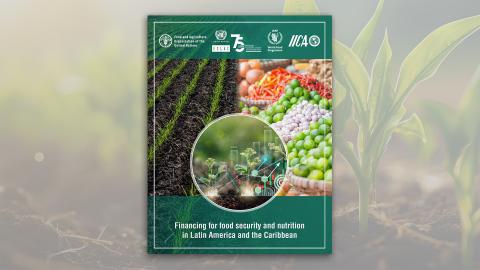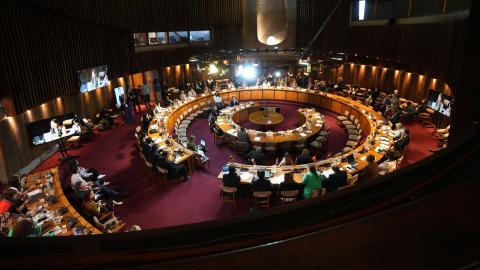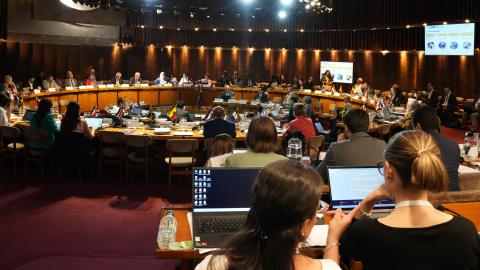Press Release
The 2030 Agenda for Sustainable Development calls for putting an end to all forms of poverty and expresses a consensus on the need to move towards more egalitarian, supportive and united societies. In particular, the document urges “leaving no one behind,” which means promoting a sustainable development model that includes everyone, without discrimination of any kind, especially as relates to gender, ethnicity, race, age or area of residence.
According to data published in ECLAC’s Social Panorama of Latin America, our region made important progress in the last decade, reducing the incidence of poverty by more than a third and lowering income inequality as measured by the Gini coefficient by approximately 10%.
Between 2002 and 2014, the percentage of people living in poverty conditions fell to 28.2% from 43.9% and the Gini coefficient declined to 0.491 from 0.542. This progress was driven not only by a context of economic growth with job creation and formalization, but also a political context in which governments of the region gave high priority to social development goals, promoting public policies aimed at expanding social protection with the ultimate goal of universality, as well as active policies in the social and labor-market spheres of a redistributive and inclusive nature.
Progress made in the field of education was also notable, with the almost complete universalization of primary education, greater registration for secondary education and the adoption by some countries, such as Brazil, of inclusive policies on technical, professional and tertiary education for segments traditionally excluded from these opportunities, such as children, young people and adults from households with fewer resources and those of indigenous and Afro-descendant communities.
Despite the gains achieved in terms of social conditions, Latin America is still characterized by high levels of poverty and income inequality—the latter of which are among the most elevated figures in the world—as well as other aspects of well-being.
In particular, women, indigenous peoples, Afro-descendant populations, children, older people and people with disabilities are overrepresented in situations of discrimination, scarcity and rights infringements. In addition, the region is currently experiencing negative economic growth and the process of poverty reduction seems to be reversing: ECLAC has forecast an increase in the percentage of the population living in situations of poverty to 29.2% in 2015.
In the face of major challenges of a structural nature, which become even more complex in the current context of economic deceleration, ECLAC has advocated in its latest document presented at the Thirty-sixth session, Horizons 2030: Equality at the Centre of Sustainable Development, for a reorientation of the development paradigm, in which equality should be the main goal and is an indispensable condition for achieving a region without poverty.
In particular, in the report Inclusive Social Development: The Next Generation of Policies for Overcoming Poverty and Reducing Inequality in Latin America and the Caribbean, presented at the 2015 Regional Conference on Social Development, ECLAC warns that, from an approach to poverty that puts equality at the center, progress on its reduction is fragile and reversible if it is not accompanied by public policies and solid social institutions that promote job creation and decent employment, access to basic services—such as health, education, housing, drinking water, electricity and sanitation—and the strengthening of social protection systems.
As economic growth and job creation contract, one should not make the mistake of drastically cutting social spending. Despite the difficulties of the current situation, the commitment to overcoming poverty and reducing inequalities entails consolidating strategies, policies and inclusive social development programs, guaranteeing the necessary social investment.
Countries’ commitment to the 2030 Agenda does not permit rollbacks on social matters. It is fundamental that consensuses in that area be broadened, which also entails moving urgently away from the culture of privilege, which historically has characterized Latin American and Caribbean societies, to a culture of equality.


